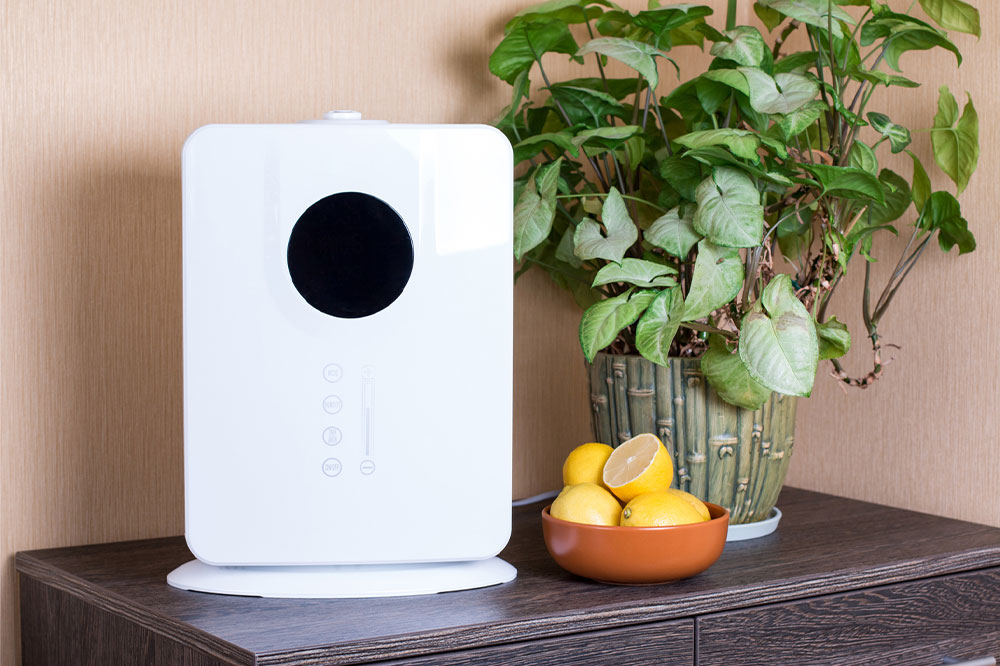5 simple ways to improve air quality indoors

Indoor air pollution is a growing problem in American households. Excessive clutter, poor cleaning hygiene, and lack of ventilation are all factors that can affect air quality. Dust, microscopic spores released from the mold, pet dander, and even chemical gases are some of the major allergens that can compromise healthy living. But worry not as the following simple lifestyle changes and preventive maintenance ideas can quickly turn things around indoors to improve breathable air quality.
Change filters and install air purifiers
Air conditioners filter out most of the pollutants before cooling and recycling the air indoors. You must regularly change the filters and get the appliance serviced to enhance efficiency. It is also advisable to use a good quality air purifier with high-efficiency particulate absorbing or HEPA filters. HEPA eliminates nearly 99% of the pollutants in the air, including common VOCs, smoke, carbon dioxide, spores released by molds, and even pet dander, among common allergens. These appliances help improve air quality and make the environment more breathable for anybody suffering from respiratory disorders.
Proper ventilation
The air quality indoors cannot be improved without proper ventilation. Open the windows and doors in each bedroom at least once a day to allow fresh air to flow freely. Recycling natural air also removes pungent odors and eliminates lingering smells that accumulate throughout the day. Poor ventilation also increases dampness and humidity indoors, causing mold and mildew to grow on the walls or ceilings. Install a dehumidifier to help get rid of the dampness.
Maintain proper cleaning hygiene
A clean house helps maintain better air quality. Period. You can easily vacuum and remove most allergens that accumulate on the floors, carpets, furnishings, and upholstery. Even the best vacuum and suction cleaning appliances come with HEPA filters. If you have pets in the house, vacuum all common areas at least once every couple of days to remove pet dander. Also, try and get rid of unnecessary clutter. Excess furniture harbors most of the dust and pollutants that settle on the surface. This will only increase the time and effort needed to maintain a clean house.
Get some indoor plants
Flowering plants improve home décor and release natural fragrances. Indoor plants also circulate fresh air and absorb excess carbon dioxide. English ivy, bamboo palm, Chinese evergreen, daisy, peace lily, spider plant, lemon button fern, parlor palm, aloe vera, Ficus, and flamingo lily are excellent options for the living room. However, ensure nobody in the house has a plant allergy as some indoor plants can aggravate symptoms of several known respiratory disorders.
Use exhaust fans
Kitchen and bathroom exhaust fans are essential installations as they help vent out pungent odors and unpleasant smells. Cooking on a gas top stove or using heating appliances that burn any form of fuel releases carbon monoxide gas. Installing an exhaust vent over the top of the stove or having a small exhaust fan will directly draw out the fumes, odors, and smells of the kitchen. Also, exhaust fans installed in the washroom can vent out contaminants that linger in the atmosphere. Exhaust fans also help remove the humidity from these common areas and don’t allow mold or mildew to grow indoors.
When practiced regularly, these simple changes can improve air quality in the long run.

